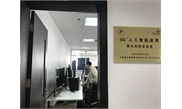 |
| US$13bil man: Zhang is the youngest self-made billionaire in Asia on the Bloomberg index, which tracks the world’s 500 richest people. He is worth US$13bil. — Bloomberg |
https://youtu.be/VKD3jt0KvhQ
-
Ownership structure used by Zhang Yiming is popular in tech
-
Chinese authorities will soon allow so-called VIEs to list
The business, founded in 2012, has more than 1 billion active monthly users across eight mobile apps, including a news aggregator powered by artificial intelligence and a video-sharing platform.
Zhang is the youngest self-made billionaire in Asia on the Bloomberg index, which tracks the world’s 500 richest people. His rapid wealth accumulation is a sign that China hasn’t lost its knack for creating mega-rich company founders despite a slowing economy.
His rapid wealth accumulation -- he’s now the world’s 98th-richest person -- is a sign that China hasn’t lost its knack for creating mega-rich company founders despite a slowing economy. It also helps explain why authorities seem to be taking a more tolerant stance toward a corporate structure favored by the country’s technology tycoons, most of whom have chosen to list their businesses overseas.
Zhang’s fortune is harder to calculate than the founders of Baidu Inc. and Tencent Holdings Ltd. in part because his company isn’t yet public. It’s also difficult because Bytedance is structured in the same way as the two tech behemoths -- a complicated ownership system known as a variable interest entity (VIE).
Of the 44 Chinese tycoons on Bloomberg’s wealth index, eight are tech moguls with VIEs listed outside China. The billionaires’ combined net worth exceeded $150 billion as of March 21, and their stakes weren’t publicly known until the companies filed with regulators ahead of going public in New York or Hong Kong.
VIEs have never been formally endorsed by the Chinese government. But in an acknowledgment of their importance, officials will soon permit VIEs to go public in the country, allowing them to list on a new technology-focused exchange set to launch in coming months.
Complex Structure
Bytedance is, for now, a closely held VIE with a complex structure that involves layers of holding companies.
Its main business, Jinri Toutiao, is ultimately owned by Zhang and Bytedance Senior Vice President Zhang Lidong through a Beijing-registered holding firm, according to China’s National Enterprise Credit Information Publicity System.
Zhang pledged his 98.8 percent stake to another Beijing company, which in turn is owned by a Hong Kong-registered firm. That entity, where Zhang is a director, is owned by a company registered in the Cayman Islands. The principals won’t be disclosed unless there’s an IPO prospectus.
The Bloomberg Billionaires Index calculated Zhang’s net worth by pegging his stake at 65 percent and using the company’s valuation of $20 billion, a figure provided in 2017 by people with knowledge of the matter. The analysis assumes his stake has been diluted through funding rounds.
Bytedance is said to have secured a $75 billion valuation in late 2018, making it the world’s most valuable startup -- though the figure isn’t used in the net worth calculation because the details haven’t been confirmed.
Yin Ai, a Bytedance spokeswoman, declined to comment on Zhang’s wealth or the ownership structure.
Zhang uses a VIE because Chinese regulations limit foreign investment across more than 30 sectors including the internet, telecommunications and education. The VIE structure -- which allows offshore companies to control domestic Chinese businesses through contractual agreements -- circumvents the rules and allows, for example, Baidu’s holding company to be based offshore (and list in the U.S.) while still being a dominant force in China.
Internet giant Sina Corp. pioneered the VIE model so that it could transfer income from onshore operating businesses to an offshore holding company, an arrangement that meant the Cayman Islands entity could list on the Nasdaq Stock Market in 2000.
There are risks to the structure for foreign investors, said Donald Clarke, a specialist in Chinese law at George Washington University.
“A contract entered into for an unlawful purpose is invalid under Chinese law,” he said. “Any time the government wants to pull the plug, it can.”
Still, that hasn’t stopped more than 100 companies using VIEs in offshore IPOs, according to research by Zhou Fang, a Beijing-based partner at law firm JunHe LLP, who predicts that more companies will follow.
That growth helps explain why authorities are slowly embracing VIEs. Earlier this month, China enacted a foreign-investment law that allayed investor concerns about the future of such companies, while unicorn VIEs will be able to list on the new exchange in Shanghai, known as the Tech Board.
“To some extent, it shows the government easing concerns over VIEs -- but they still care about who’s the ultimate controller of the company,” said Zhang Biwang, a partner at Allbright Law Offices. As long as the controller of the company remains a Chinese citizen, “the government won’t shut their eyes and ignore reality to make the companies give up VIEs.”
By Venus Feng Bloomberg
Read more:
China tech firms, seeking passion and energy,
promote younger staff
promote younger staff
https://www.reuters.com/article/us-china-tech-ageism/china-tech-firms-seeking-passion-and-energy-promote-younger-staff-idUSKCN1R60PS
Related posts:












